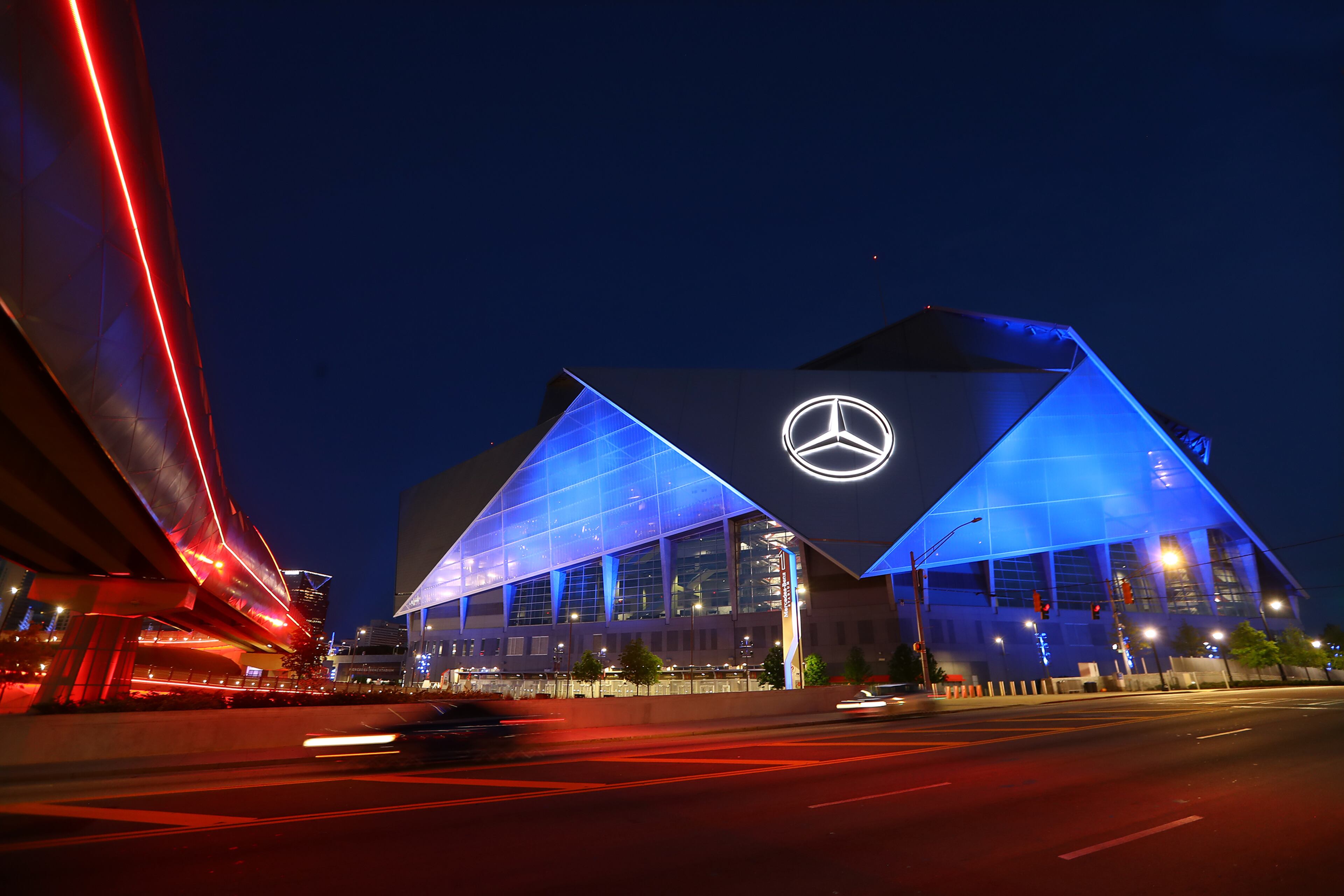In a post-virus world, will sports matter less — or more?










On March 11, Georgia beat Ole Miss in the SEC tournament in Nashville. That same night, Georgia State lost at home to Georgia Southern in the Sun Belt quarterfinals. Just up the street, the Hawks lost to the Knicks in overtime. The next afternoon, the Braves won an exhibition game against the Tigers in Lakeland, Fla.
Those were our last sightings of any local team. We have no idea when we’ll set eyes on them again. We’ve just completed a 10-day span that was to have seen the Braves open against the Marlins at the rechristened Truist Park, a men’s basketball champion crowned at Mercedes-Benz Stadium and a green jacket awarded in Augusta. None of that happened.
Sports have gone dark. Schools have closed. Most of society has gone indoors, venturing out only for essentials. Business and education are being conducted via Zoom. Easter services were available mostly if not entirely by livestreaming. Nothing is the way we figured it would be, and yet we’ve pressed on. You can’t call this normal, but after a month, our self-isolating routines have become something approaching that — routine.
This is in no way a happy moment. People have died. People are sick. People have lost jobs. Our world will never be the same. This is a time of sorrow and fear and loneliness. This is a time of great testing.
That said, we ask: If you had known five weeks ago that we’d be doing as we are — and that we’d have done it for a month — would you have believed it? Nobody in his/her right mind would have chosen this path, but we didn’t get to pick. The virus chose for us. All we can do is seek to adapt and endeavor to muddle through. To our credit, we’re trying.
From David Wallace-Wells in New York magazine's Intelligencer: "It can be easy to forget, a few weeks into something like a hemisphere-wide lockdown, just how absolutely unprecedented this public-health mobilization truly is: nearly every American in every state embracing punishing, restrictive quarantine-like isolation for the sake of the country as a whole … This moment of solidarity is truly something to behold."
As for what’s next: Nobody knows. We don’t know whether lost jobs will return. We don’t know if corporate America will regard this enforced belt-tightening as a road map to leaner days. We don’t know when there’ll be a vaccine. We don’t know when the shelter-in-place directives will be lifted. We don’t know if there’ll be a second wave. We’re all, to invoke the sports argot, day-to-day.
And, not that everything revolves around sports — as we speak, nothing revolves around sports — but we wonder if our games, whenever they return, will hold the same place in our hearts/minds. (For the hundredth time: This is the sports section, and I'm a sportswriter.) The "fan" part of sports fans stems from "fanatic," which suggests such persons would cast aside good sense in the zeal to follow a team. But a poll released last week by Seton Hall's Stillman School of Business found that 72 percent of 762 respondents said they wouldn't attend a sporting event unless/until there's a vaccine.
That's something for the various leagues/organizations to consider as they attempt to decide how to move forward. Not to be crass, but fans in the stands mean money in the till. But 76 percent of those surveyed by Seton Hall said they would watch games that were played without fans in the arena/stadium. That leads us to another issue, voiced last week by Ohio State athletic director Gene Smith: "If we don't have fans in the stands, we've determined it's not safe for them in a gathering environment. So why would it be safe for the players?"
Could our time away from sports make us reevaluate their place in our lives? This is me, speaking as a fan: I once checked the Manchester (U.K.) Evening News site daily for updates on Manchester United, my team of choice. I haven’t for two weeks. I’ve stopped waking up on Saturdays thinking, “Let’s see how they’ll blow this one.” (I’m not a glass-half-full guy.) That had been my weekend. I have different weekends now.
Then again, the return of sports could serve as a distraction from stark reality. Wouldn't I rather grouse about Anthony Martial missing another gilt-edged chance than contemplate the need to wear a mask to the grocery? Isn't it more fun to discuss Todd Gurley than shelter-in-place procedures?
The coronavirus reset the sports calendar by taking everything off it. What might happen when sports return with open gates? Would you take your family to a stadium that seats 70,000 people if no vaccine exists? (Airlines have stopped assigning middle seats to help in social distancing, not that flights are crowded anymore.) Would you run such a risk for something that’s by definition non-essential? If you stopped going for a while, would you be as apt to re-up for tickets in a post-virus world?
Here I offer an apology. In this space, I’ve taken to asking questions that can’t be answered. That’s never been my M.O. — personal credo: often wrong but never in doubt — and I’m sorry I don’t have more for you. I don’t know when sports will return. I’m not sure how they’ll look when they do. Maybe we’ll care even more, or much less. Perhaps there’ll be no difference at all.
We are, however, in the midst of a world-changing event. I’d expect there to be a difference in everything, sports included.

